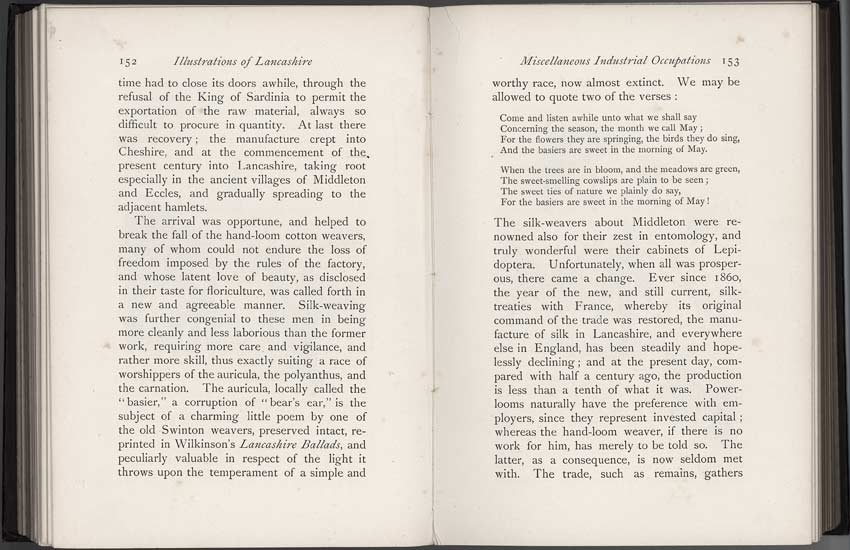
Scan and page transcript from:
LANCASHIRE - Brief Historical and Descriptive Notes
by Leo H. Grindon
Pub. 1892
pages 152-153 |
152 Illustrations of Lancashire time had to close its doors awhile, through the refusal of the King of Sardinia to permit the exportation of the raw material, always so difficult to procure in quantity. At last there was recovery; the manufacture crept into Cheshire, and at the commencement of the present century into Lancashire, taking root especially in the ancient villages of Middleton and Eccles, and gradually spreading to the adjacent hamlets. |
Miscellaneous Industrial Occupations 153 worthy race, now almost extinct. We may be allowed to quote two of the verses: Come and listen awhile unto what we shall say When the trees are in bloom, and the meadows are green, The silk-weavers about Middleton were renowned also for their zest in entomology, and truly wonderful were their cabinets of Lepidoptera. Unfortunately, when all was prosperous, there came a change. Ever since 1860, the year of the new, and still current, silk-treaties with France, whereby its original command of the trade was restored, the manufacture of silk in Lancashire, and everywhere else in England, has been steadily and hopelessly declining; and at the present day, compared with half a century ago, the production is less than a tenth of what it was. Power-looms naturally have the preference with employers, since they represent invested capital; whereas the hand-loom weaver, if there is no work for him, has merely to be told so. The latter, as a consequence, is now seldom met with. The trade, such as remains, gathers |
